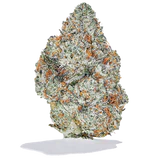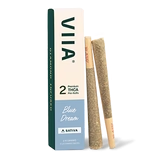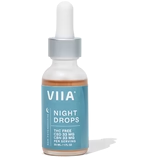 cbd, endocannabinoid, thc
cbd, endocannabinoid, thcCannabinoids vs. Cold Symptoms: Potential Benefits and Risks
As the end of the year approaches, many of us find ourselves grappling with the dreaded cold season.
In search of relief from sore throats, runny noses, coughing, and headaches, many are turning to more natural solutions like cannabis cannabinoids (CBD, THC, CBDa, CBN, and CBG).
While these compounds have become wildly popular for their potential wellness benefits in various contexts, it's important to remember that they're not cure-alls.
This article aims to explore the research surrounding cannabinoids and their interaction with cold symptoms, offering insights — not medical advice. We'll uncover the potential benefits and limitations of smoking cannabis and edibles in the context of the common cold.
Key Takeaways
-
Cannabinoids and Cold Symptoms: CBD might alleviate cold symptoms with its potential anti-inflammatory properties, but it hasn’t been clinically proven — nor will it work necessarily better than over-the-counter cold and flu remedies.
-
Smoking Cannabis with a Cold: Smoking cannabis when experiencing cold symptoms is not recommended as it could cause further lung irritation.
-
Cannabis Edibles for Sore Throat Relief: Cannabis edibles might offer sore throat relief, but it could take some time (30-60 minutes). You might be better off reaching for cough drops.
- Cannabinoids and Viral Infections Research: Preliminary studies on cannabinoids' effects on viral infections lack human-based research.
Cold and Flu Symptoms: Understanding the Basics

Most of us are well-versed in what causes the common cold, the flu, and the symptoms. But if you need a brief refresher, let's review it together.
The common cold and flu are both respiratory illnesses, but different viruses cause them — Rhinoviruses cause the cold, while influenza viruses cause the flu.
Both cold and flu viruses are transmitted through droplets in the air when an infected person coughs, sneezes or speaks and by touching surfaces contaminated with these viruses.
Cold and flu symptoms look very similar and include:
- Runny or stuffy nose
- Sore throat
- Coughing
- Fatigue and weakness
- Body aches
The differences typically lie in their severity. Flu symptoms are generally more severe and intense than cold symptoms, and flu symptoms tend to come on suddenly, whereas cold symptoms develop gradually.
You should seek medical attention if you start to experience more severe symptoms such as difficulty breathing, chest pain, persistent fever, or confusion.
Does Weed Help with a Cold?
One common question is whether cannabis, mainly when smoked, can alleviate cold symptoms like a runny nose, excess phlegm, and aches.
While some personal accounts swear by smoking cannabis for temporary relief from headaches and use it as a sleep aid, it's worth noting that the last thing a sore throat and lungs need is smoke that could irritate and worsen respiratory symptoms.
Alternative Forms of Cannabis for Common Symptoms of the Cold and Flu
As you know, we live in a golden age of cannabis, which means cannabis compounds are available to us in various forms, from tinctures/oil, edibles, capsules, topicals, and even cannabis tea — all of which bypass the lungs and may provide soothing effects.
However, there is a notable lack of clinical research on the effects of cannabis on cold symptoms.
Some people will take CBD for a sore throat or THC edibles to help relieve pain and sleep better, but it's worth noting that none of these "home remedies" are backed with scientific research.
Can Edibles Help with a Sore Throat?

Some cannabinoids, particularly CBD, have been recognized for their anti-inflammatory properties. Studies suggest CBD may modulate the body's immune response, reducing inflammation and relieving pain [1].
In the context of a sore throat, which often involves inflammation and pain, we could see how high CBD edibles could provide some comfort. However, edibles often have delayed effects as they need to be digested to enter the bloodstream. It could take 30 to 90 minutes (depending on your metabolism) before you start feeling any effects.
In this instance, you're much better off reaching for over-the-counter throat lozenges or antiseptic medication sprays to relieve your sore throat quickly.
Cannabinoids and Viral Infections
The research of cannabinoids in the context of viral infections is becoming a popular area of scientific research. Let's break down some of the current research insights.
Cannabinoid Interaction with the Immune System
Cannabinoids like CBD and THC are known to interact with the body's endocannabinoid system (ECS). The ECS is critical in regulating physiological responses, including the immune response.
Research suggests cannabinoids can modulate immune functions, potentially impacting the body's response to viral infections [1].
A notable aspect of cannabinoids is their anti-inflammatory properties. Inflammation is a typical immune response to viral infections, and controlling it can be crucial in managing such infections [2].
Cannabinoids have also been observed to affect the behavior of various immune cells. For example, they can influence macrophages and T-cells, which are crucial in the body's inflammatory response.
A study in the British Journal of Pharmacology highlighted how cannabinoids can modulate the function and migration of these cells [3].
Does that mean you should amp up your cannabis use when the cold season comes around? No.
That's because cannabinoids won't make you immune to viral infections. While research suggests that cannabinoids can modulate immune functions, this doesn't necessarily translate to enhanced protection against viruses like the common cold or flu.
The immune system is incredibly complex and operates in a delicate balance to protect the body from harm. Cannabinoids like CBD are known to interact with the endocannabinoid system, which regulates immune responses. However, modulating the immune system doesn't equate to strengthening it against viral infections.
On top of this, most studies on cannabinoids like THC and CBD have focused on their potential anti-inflammatory and pain-relieving properties rather than antiviral effects.
CBDa and CBGa: Corona Virus Research
This research on cannabinoids made headlines during the height of the coronavirus epidemic.
Researchers investigated the binding affinity of CBDa and CBGa to the spike protein of SARS-CoV-2. They found that these cannabinoids could bind to the spike protein, potentially inhibiting the virus' ability to enter human cells and cause infection [4].
The study primarily involved a test tube and computational modeling methods used for initial screening and hypothesis generation but did not replicate the complexity of infections in living organisms. In other words, it opens up more research but should not be taken seriously as prevention of cold viruses, as it has never been proven on living organisms, let alone reach clinical trial stages.
Natural Remedies & Cold Prevention
Smoking weed or indulging in cannabis various cannabis edibles may be fun and offer some benefits towards relaxation, but it shouldn't be your action plan for protection against cold and flu season or be your primary reach for treating discomfort.
Here's what you can do to help protect yourself and your community with the fast-approaching cold and flu season:
Maintaining Good Hygiene
-
Handwashing: Frequent and thorough handwashing with soap and water is one of the most effective ways to prevent the spread of cold viruses. Washing hands after being in public spaces or touching shared surfaces is particularly important.
- Avoid Touching the Face: Minimizing touching the face, especially the eyes, nose, and mouth, can reduce the risk of transferring viruses from the hands to these entry points.
Ensuring Adequate Sleep
-
Quality Sleep: Adequate sleep is crucial for a well-functioning immune system. Adults should aim for 7-9 hours of quality sleep per night.
- Sleep Hygiene: Maintaining a regular sleep schedule and creating a restful environment can improve sleep quality. This is where adding cannabinoids such as CBD and CBN may help to offer support with helping you maintain a healthy sleep cycle.
Eating a Balanced Diet
-
Nutrient-Rich Foods: A diet rich in fruits, vegetables, whole grains, lean proteins, and healthy fats can provide essential nutrients that support immune health.
- Hydration: Staying well-hydrated is essential for overall health and can help keep the mucous membranes in the respiratory tract moist, potentially enhancing their ability to trap and eliminate pathogens.
Engaging in Regular Exercise
-
Moderate Exercise: Regular, moderate exercise has been shown to boost the immune system. Activities like walking, jogging, cycling, or swimming for 30 minutes most days of the week can be beneficial.
- Avoid Overtraining: It's important not to overdo it, as intense or prolonged exercise without adequate recovery can weaken the immune system.
Managing Stress Levels
-
Stress and Immunity: Chronic stress can weaken the immune system, making the body more susceptible to infections, including colds.
-
Stress Reduction Techniques: Practices like meditation, yoga, deep breathing exercises, and mindfulness can effectively manage stress.
- Cannabis Products and CBD: Cannabis products, especially those containing CBD, are becoming increasingly popular for stress management. Full-spectrum CBD has been studied for its potential to promote relaxation, which could indirectly support immune health by reducing stress.
While no single strategy can completely prevent colds, combining these natural remedies can significantly reduce the risk. THC or CBD for stress reduction is an interesting area of exploration, but it should be approached as a complementary strategy rather than a standalone solution.
The Takeaway: CBD Wellness and Cold Season
Research points to cannabinoids like THC and CBD, known for their anti-inflammatory properties, which might relieve specific cold symptoms like headaches and restlessness.
But it's important to understand that they aren't likely to offer significant help once a cold has fully developed.
You're better off reaching to more traditional forms of cold and flu treatment from a healthcare professional than reaching for your medical marijuana stash or hemp-derived herbal supplements.
And if you have any cough or lung irritation, you should avoid smoking cannabis as it could exasperate your respiratory symptoms.
FAQs on Cannabis Use & Cold or Flu Symptoms
Resources:
- Kaplan, B. L., Springs, A. E., & Kaminski, N. E. (2008). The profile of immune modulation by cannabidiol (CBD) involves deregulation of nuclear factor of activated T cells (NFAT). Biochemical pharmacology, 76(6), 726-737.
- Atalay, S., Jarocka-Karpowicz, I., & Skrzydlewska, E. (2019). Antioxidative and anti-inflammatory properties of cannabidiol. Antioxidants, 9(1), 21.
- Kaplan, B. L. (2013). The role of CB1 in immune modulation by cannabinoids. Pharmacology & therapeutics, 137(3), 365-374.
- van Breemen, R. B., Muchiri, R. N., Bates, T. A., Weinstein, J. B., Leier, H. C., Farley, S., & Tafesse, F. G. (2022). Cannabinoids block cellular entry of SARS-CoV-2 and the emerging variants. Journal of natural products, 85(1), 176-184.










